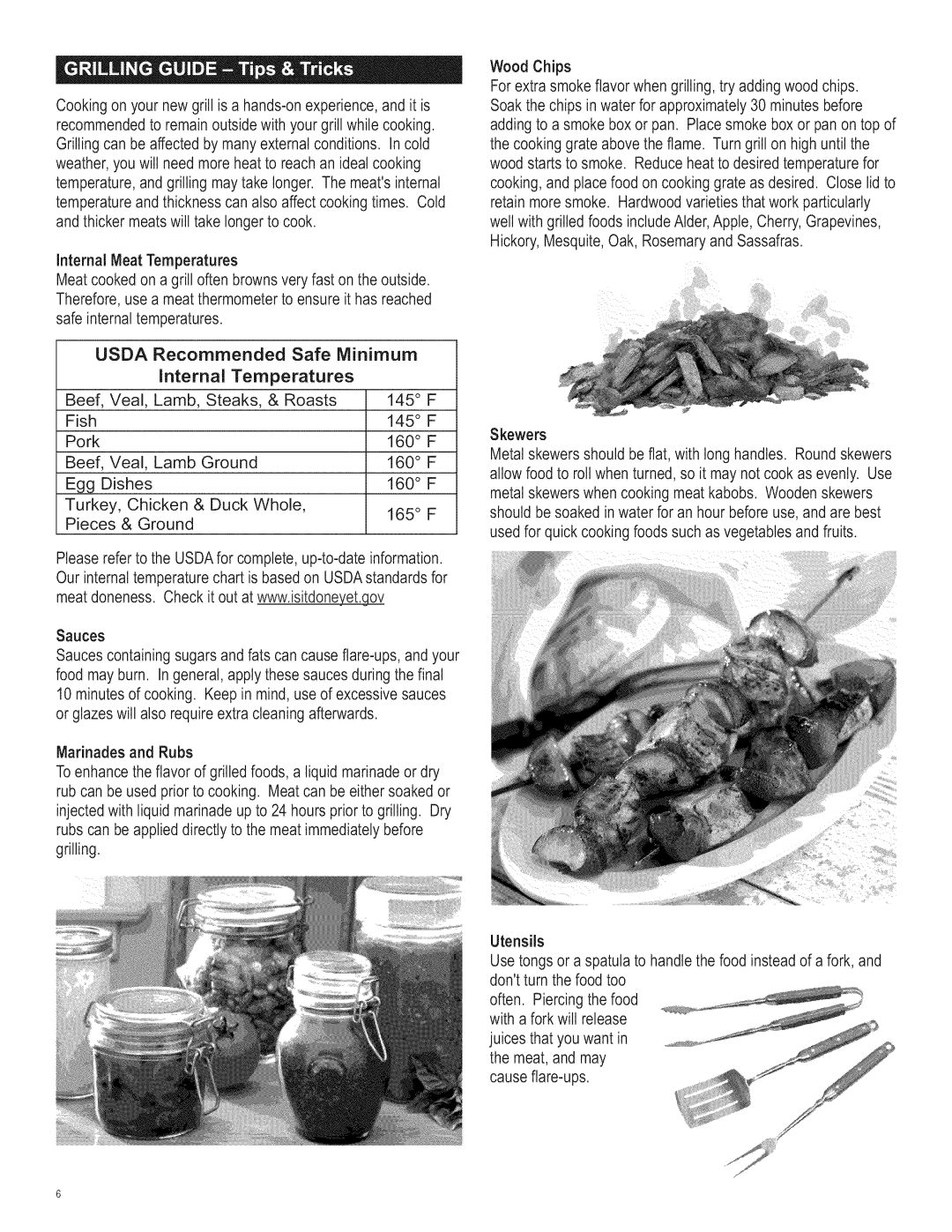
InternalMeatTemperatures Meatcookedonagrilloftenbrownsveryfastontheoutside. Therefore,useameatthermometertoensureithasreached safeinternaltemperatures.
USDA | Recommended | Safe | Minimum | |||
|
|
| Internal Temperatures |
| ||
Beef, | Veal, | Lamb, | Steaks, | & Roasts | 145 ° F | |
Fish |
|
|
|
|
| 145 ° F |
Pork |
|
|
|
|
| 160 ° F |
Beef, | Veal, | Lamb | Ground |
| 160 ° F | |
Egg | Dishes |
|
|
| 160 ° F | |
Turkey, | Chicken | & Duck | Whole, | 165 ° F | ||
Pieces | & Ground |
|
|
| ||
Please refer to the IJSDAfor complete,
Sauces
Sauces containing sugars and fats can cause
Marinades and Rubs
To enhance the flavor of grilled foods, a liquid marinade or dry rub can be used prior to cooking. Meat can be either soaked or injected with liquid marinade up to 24 hours prior to grilling. Dry rubs can be applied directly to the meat immediately before grilling.
Wood Chips
For extra smoke flavor when grilling, try adding wood chips. Soak the chips in water for approximately 30 minutes before adding to a smoke box or pan. Place smoke box or pan on top of the cooking grate above the flame. Turn grill on high until the wood starts to smoke. Reduce heat to desired temperature for cooking, and place food on cooking grate as desired. Close lid to retain more smoke. Hardwood varieties that work particularly well with grilled foods include Alder, Apple, Cherry, Grapevines, Hickory, Mesquite, Oak, Rosemary and Sassafras.
Skewers
Metal skewers should be flat, with long handles. Round skewers allow food to roll when turned, so it may not cook as evenly. Use metal skewers when cooking meat kabobs. Wooden skewers should be soaked in water for an hour before use, and are best used for quick cooking foods such as vegetables and fruits.
Utensils
Use tongs or a spatula to handle the food instead of a fork, and don'tturn the food too
often. Piercing the food with a fork will release
juices that you want in the meat, and may cause
